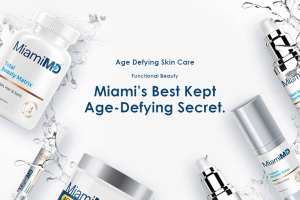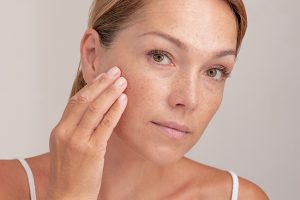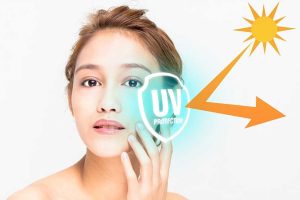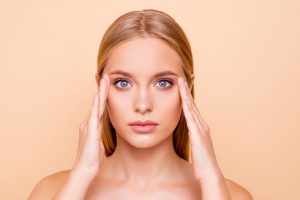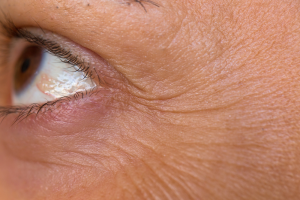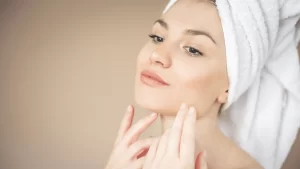Skin Care and Makeup: Which One is More Important?
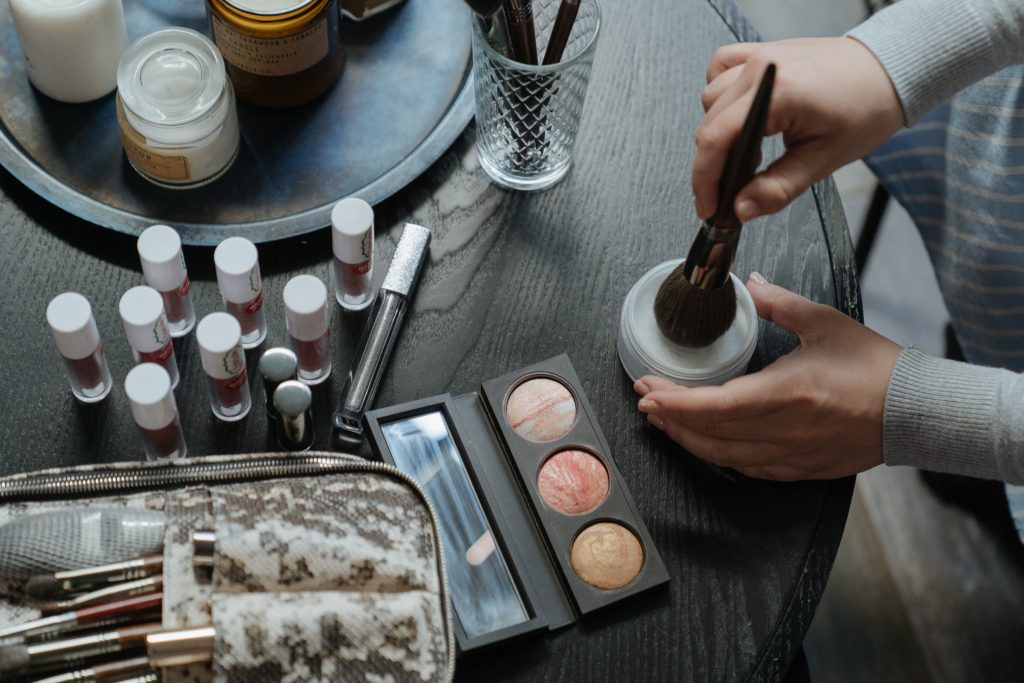
For makeup connoisseurs, or people who can’t even imagine leaving the house without a full face, incorporating skincare products into their daily routine is all part of the process. Makeup isn’t just about covering up; it’s about creating art on a blank canvas.
MiamiMD believes that healthy skin is the foundation of any makeup routine, so here are some makeup-centric skincare tips so your skincare products work with you instead of against you.
Always Start With A Clean Face
No matter what time of day you put your makeup on, you should always start out with a clean face. This is important for a few different reasons.
First and foremost, most makeup has a tendency to clog the skin. While some ingredients are worse than others, you should never leave it on your face longer than necessary.
Washing your skin is key to being able to rinse away not only your old makeup but also dead skin cells and environmental pollutants that have a tendency to build up on the face.
You’ll also want to make sure to choose a facial cleanser that fits your skin type. Those who have dry skin should choose a cream-based cleanser to help retain as much moisture as possible, while people with oily skin should use either a foam or a gel cleanser.
Combination skin can be harder to find the right cleanser for, requiring a little trial and error, but there have been far more options that cater to this specific skin type in the recent years.
Once your skin is clean and dry, you can move on to the next step of the process.
Don’t Slack On Your Serums
With a dry, clean face, it might be tempting to go right into your makeup routine. But don’t give into temptation! You’ll want to apply a serum before applying your makeup. Here’s why.
Serum and moisturizers are key to being able to make sure to keep as much hydration in your skin as possible. Dry faces have a much harder time holding onto product, as well as having a tendency to look crepey and thin.
Once you are able to catch back up and help it to retain moisture, you’ll have a smoother, easier canvas to work with.
You may also want to choose a serum like MiamiMD’s Instant Wrinkle Eraser that can help even out the fine lines and wrinkles before your makeup application. That makes it less likely that your makeup will get stuck in any lines that might be present, or crease in your under eye area.
Choose a Foundation With Sunscreen
One of the number one factors that contributes to prematurely aging skin is sun exposure. While you might not think that a single afternoon out without sunscreen will affect you all that much, the effects of that exposure compound over time.
As the sunlight touches your bare skin, its ultraviolet (UV) radiation triggers the production of dangerous molecules called free radicals.
Free radicals are atoms that contain an unpaired electron. If it’s been awhile since your last science class, that means that it “feels” unstable. Unstable atoms are constantly seeking out other atoms to bond with and help balance them out, which is how they are able to cause so much damage in the body.
One way to combine skincare products with your makeup routine is to find a foundation (or tinted moisturizer, if that’s more your style) that has sun protection built into it.
The American Academy of Dermatology recommends using at least SPF 30 or higher to make sure that you stop those UV rays from being able to not only age your skin, but increase your risk of developing skin cancer.
Many makeup brands have started adding SPF protection to their foundations, but it’s worth it to keep looking until you find one that has it.
Most dermatologists also recommend an additional layer of sunscreen over the makeup too, if possible, for even more skin protection. Don’t forget this step, even in the winter, as UV rays don’t take the holidays off.
Watch For “Pilling”
One common problem that some people run into is when your makeup starts to “pill,” or ball up and roll off your face. While this is an annoying problem, it is also one that can be neutralized if you understand why it happens and what you can do to help.
Luckily, most pilling is caused by an easy to remedy issue. Pilling happens when you apply two products together that are either not complimentary or are not able to be absorbed.
In most cases, products that tend to be the most likely to pill are also those that contain silicone. Silicones are not readily absorbed, which means they have a tendency to stay on the surface of the skin.
When you then go on to apply makeup on top of those silicone containing skincare products, instead of absorbing into the skin to create a smooth look, they sit on top of them and have a tendency to just roll off.
You’ll also want to make sure that you’re not using products that are naturally antagonistic, like oil and water. If you apply an oil based serum followed by a water soluble foundation, they’ll likely not be able to mesh.
Stick with products that have similar bases to avoid having awkward and embarrassing makeup fails. This can require a little trial and error sometimes, so take notes of which products seem to go well together and which seem to cause a problem.
Products That Should Not Be Combined
While most products will get along just fine as long as they are made with similar ingredients, that isn’t always the case. Knowing what ingredients to not pair together is just as important as knowing which get along.
A good example of two ingredients that don’t go together is vitamin C and retinol.
While, on the surface, these two products seem like they would be complementary, keeping them separate is better for the skin and for consistent benefit. Vitamin C is better to use on the skin in the daytime, and retinol is better to use overnight (as it can increase sensitivity to the sunlight and make the skin red and irritated).
In order to keep the skin calm and healthy, separate them.
The same goes for products that contain alpha hydroxy acids (AHAs) and retinol. Both of these products contain potential irritants, so using them at the same time could make your face extra sensitive. Applying makeup to an already sensitive face is a much more difficult process, and can lead to stinging, burning, and damaged skin.
Always Take Your Makeup Off
Much like you should always start with a clean face, you should also always end with one.
After a full day’s worth of wearing your makeup, it’s likely that plenty of it has made its way into your pores. This not only clogs your pores but also increases the likelihood that you’ll develop acne and other skin concerns.
Instead of letting your pores stay clogged overnight, cleansing them appropriately can help make it like you never wore any makeup at all.
However, unlike when you’re preparing your face for makeup, you’ll want to use a heavier moisturizer after your makeup is removed, like MiamiMD’s Age-Defying Lift & Firm Cream. Your skin has taken a beating over the course of the day, and it needs extra moisture to be able to replenish itself and heal overnight.
Giving it the ingredients that it needs to repair itself overnight and trigger turnover in the skin cells to keep your skin looking youthful and fresh is one of the best things you can do for your skin.
Some people may also prefer to use a toner as a middle step between cleansing and moisturizing. Most cleansers are made with some kind of alpha hydroxy acid (AHA) and, when applied using gentle pressure on a cotton pad, they help to sweep off any remaining dead skin cells.
This is better done at night, as it can be slightly irritating to the skin. But, when done regularly, it is another helpful tool in your skincare toolbox that can help you create smooth, evenly toned skin.
In Summary
So, can you use skincare products with your current makeup routine? Absolutely yes! As long as you know the right products to use, and why it is important to use them, your skincare routine and makeup routine can work together.
MiamiMD has all the skincare products you need to make your skin healthy, firm, and beautiful, with or without makeup, so come check out what dermatologist-backed anti-aging really looks like!
Sources:
https://www.aad.org/public/everyday-care/sun-protection/sunscreen-patients/sunscreen-faqs

